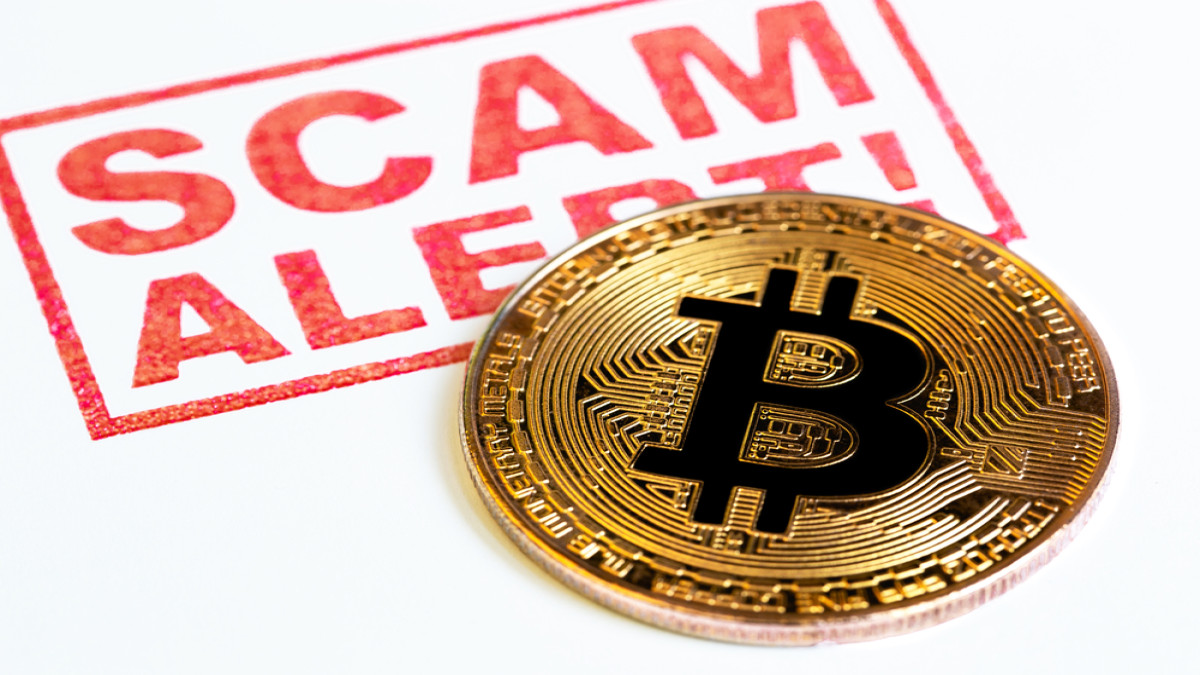Cryptocurrency scams can cause severe financial losses and affect the confidence of the whole crypto community. In this article, we will unveil the dark side of the digital currency revolution, the most common types of crypto scams, how to identify and avoid them, and strategies to stay safe in the crypto space.
The rise of digital currencies has brought about incredible opportunities and serious threats. While they provide the potential to disrupt traditional financial institutions and enable unprecedented levels of economic freedom, they have also attracted a lot of fraudulent activities, especially crypto scams.
Types of Crypto Scams
There are various cryptocurrency scams, and the perpetrators use sophisticated techniques to deceive unsuspecting investors. These scams can be online or offline and affect anyone, regardless of their knowledge about crypto.
1. Ponzi Schemes: These scams promise high returns on investment but with no tangible underlying assets or technology to back them. They rely on new investors to pay earlier investors their promised returns, and as soon as new investors stop coming in, the whole scheme collapses, and investors lose their money.
2. Phishing Scams: These scams involve criminals sending emails or messages that appear to come from legitimate crypto companies, asking users to provide their private key or log in details to access their wallets. Once they have access, they can drain the victim’s crypto wallet.
3. Fake ICOs: Initial Coin Offerings (ICOs) are famous for crypto startups to raise project funds. Fake ICOs scam investors by creating an attractive-looking website, white paper, and marketing material, promising high returns, but they don’t have any actual product or technology.
4. Fake Wallets and Exchanges: These scams involve criminals creating fake wallets and exchanges that mimic legitimate platforms. Once users deposit their crypto assets, they can’t withdraw them, and the scammers disappear with their funds.
5. Pump and Dump: These scams happen when scammers buy a low-value coin, hype it up by creating fake news or social media buzz, and then sell when the price goes up, leaving investors with worthless currency.
How to Identify and Avoid Crypto Scams
The best way to avoid crypto scams is to thoroughly research any project or company before investing money. Here are some tips on how to identify and prevent crypto scams:
1. Conduct thorough research: Before investing in any project, research the company, its whitepaper, team, and proof of concept. Check their social media profiles and online reviews to see if they have any negative information or if people have complained about them.
2. DO NOT Share Private Information: Never share your private keys or login details with anyone, and don’t click on links from unknown sources.
3. Verify Website Credentials: Verify that the website uses HTTPS and has a legitimate SSL certificate, and check for any spelling errors, bad grammar, or broken links.
4. Use Only Trusted Wallets and Exchanges: Always use a trusted wallet or exchange, and verify that it has a good reputation and a security track record.
5. Don’t Invest in Projects That Offer High Returns: Be wary of projects that offer high returns for little effort, and remember the adage, “if it’s too good to be true, it probably is.”
FAQs
1. Can I recover my crypto assets if I fall victim to a scam?
In most cases, it’s hard to recover crypto assets stolen or lost through scams, so it’s essential to be careful and avoid scams altogether.
2. Are only new investors targets of Ponzi schemes?
No, Ponzi schemes can target anyone, regardless of their experience level in crypto.
3. Is storing my crypto assets in a hardware wallet safe?
Hardware wallets are considered one of the most secure ways of storing crypto assets. However, always ensure you buy them from a trusted source.
4. Can you report a crypto scam?
You can report a crypto scam in various ways, including filing a complaint with the authorities, saying it on social media, and writing it on specialized platforms like Binance support.
5. Can you sue a crypto scammer?
Suing a crypto scammer is possible, but it may depend on the jurisdiction or country where the scam occurred, and it can be a lengthy and expensive process.
Conclusion:
Crypto scams are a significant threat to the crypto community, and it’s essential to be vigilant and informed to protect your crypto assets. Conduct thorough research, use trusted wallets and exchanges, and never share your private keys or login details.
Remember that the crypto space is still evolving, so be on the lookout for new types of scams, and stay up to date with the latest security practices to keep your crypto assets safe.



Be careful of projects that offers high returns to avoid financial losses
Cryptocurrency scam can cause financial losses and can affect confidence in the whole crypto community
TopNews always sensitize the youth with a variety of information that can be of help to us in all manners
Someone will be able to recognize,scam zone when it come to bitcoin selling on social media , the article really helped
Cryptocurrency scams are really a pain to people who want to go into it so we have to be vigilait with regards to this
Cryptocurrency scams are really a pain to people who want to go into it so we have to be vigilait with regards to this.
Wow, this is a very helpful information and it will it makes me more enlightened in crypto scams
With this article u will be able to recognize scammers and know how to be careful….. thanks for this article
Remember that the crypto space is still evolving, so be on the lookout for new types of scams, and stay up to date
Wow, this information is really helpful, who will have thought of this, especially those who don’t really have more knowledge about crypto currency. This is really a good article
smedia buzz, and then sell when the price goes up, leaving investors with worthles
Going into crypto currency without some caution is like walking arohnd blindfolded.I’m glad this article exist Thank you
Cryptocurrency is good but one has to thread with caution, because many people have fallen victims to different schemes all in the name of cryptocurrency.
Wow . Very good information on crypto scamming. Who would have thought that there was crypto scamming
Wow
Sha everything has it dark side and the should tackle that bad side of it so s to make the digital currency exchange better for everyone
Such an eye opener… going into cryptocurrency, one must be so careful..it really requires an expert to detect scam and avoid it
I’m glad there are articles like this
I’ve actually for their scams ponzi scheme to be precise
I’ve learned to be more careful
Cryptocurrency is a good way of making money online, but for someone to go into it, you need someone who has been doing it for long, especially someone who understands the tactics.
It’s a very good and helpful article. Thanks for enlightening me. It’s not easy to recognize scammers but after reading this, I feel it’s quite easy.
Crypto currency is not for the weak, I remember last year I lost over $1k just in trading alone, trading bitcoin
Exactly it’s not for the weak at all, that’s why risk takers makes money at the end
Good advice but maybe we can trust binance and other wallets like trust wallet and Coinbase and Lino
Cryptocurrency is a good way of making money online
But need to be careful when investing into business with cryptocurrency
Cryptocurrency scams are really a pain to people who want to go into it so we have to be vigilait with regards to this.